Story
Cricket in west Asia: Whetting appetite for bat and ball in dry Kuwait
19 Jul, 2024
The tiny Gulf emirate of Kuwait, which came into global limelight due to the Gulf War, is gradually climbing the ladder in cricketing world and trying to match up to the standards of its more acclaimed neighbours, UAE and Oman
 Bareera K.H.
Bareera K.H.
A young aspiring cricketer beginning to write
 Khurram Habib
Khurram Habib
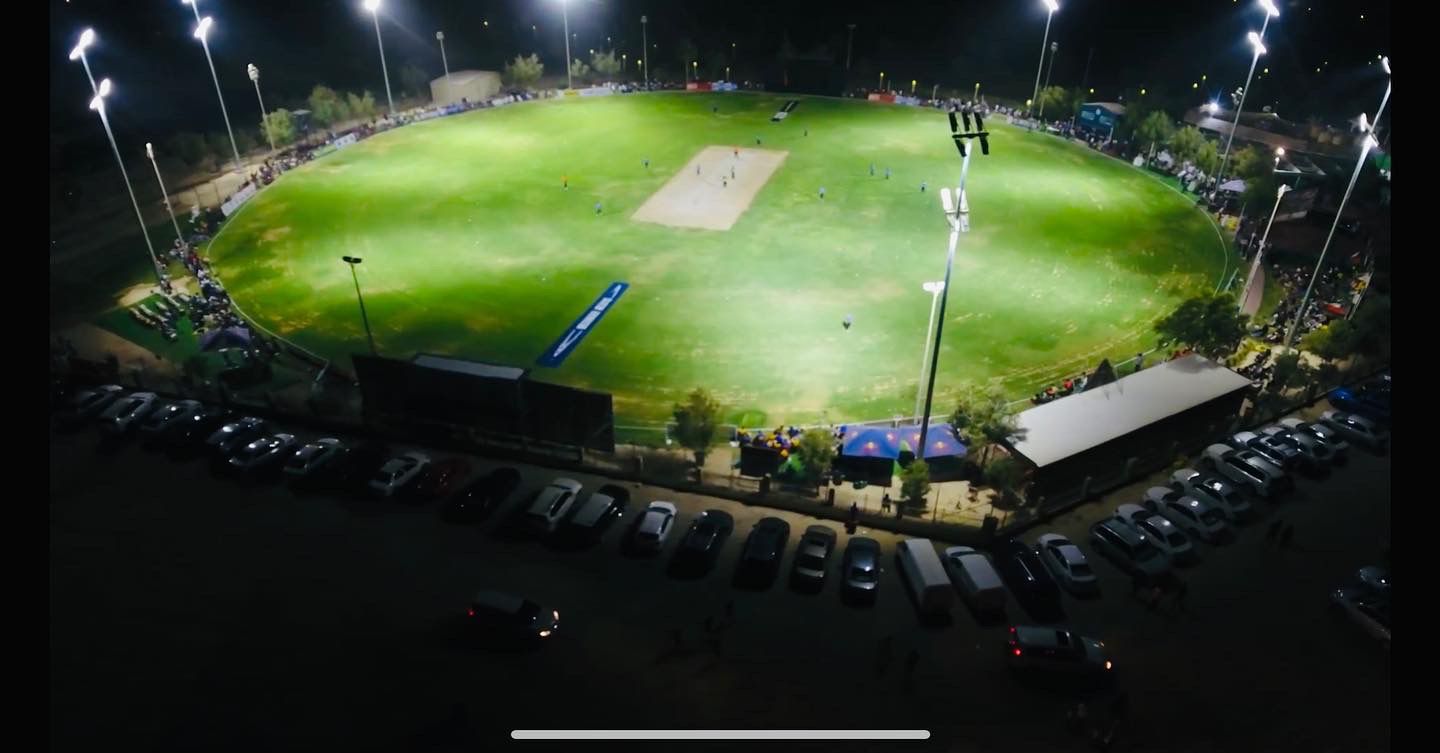
In 2014, Sajid Ashraf, a Kuwaiti of Pakistani descent who had completed his management education in Manchester before returning home to join family business, decided to bring some fun to the entertainment-starved south Asian diaspora in the desert emirate.
The west Asian country, whose occupation by Iraq in 1990 had triggered the ravaging Gulf War, is dry and Ashraf decided to bring cricket in a big way to whet the appetite of people.
Although cricket in Kuwait goes back to 1960s and 1970s when the Indian, Pakistani, Bangladeshi and even British expatriates used the two Kuwait Oil Company’s cricket grounds for their Kuwait Olympic Company Cricket Tournaments, a formal body — Kuwait Cricket — was formed only in 1996. It was affiliated to Kuwait Olympic Committee with Sheikh Fahad Jaber Al Sabah, belonging to the royal family, its first president.
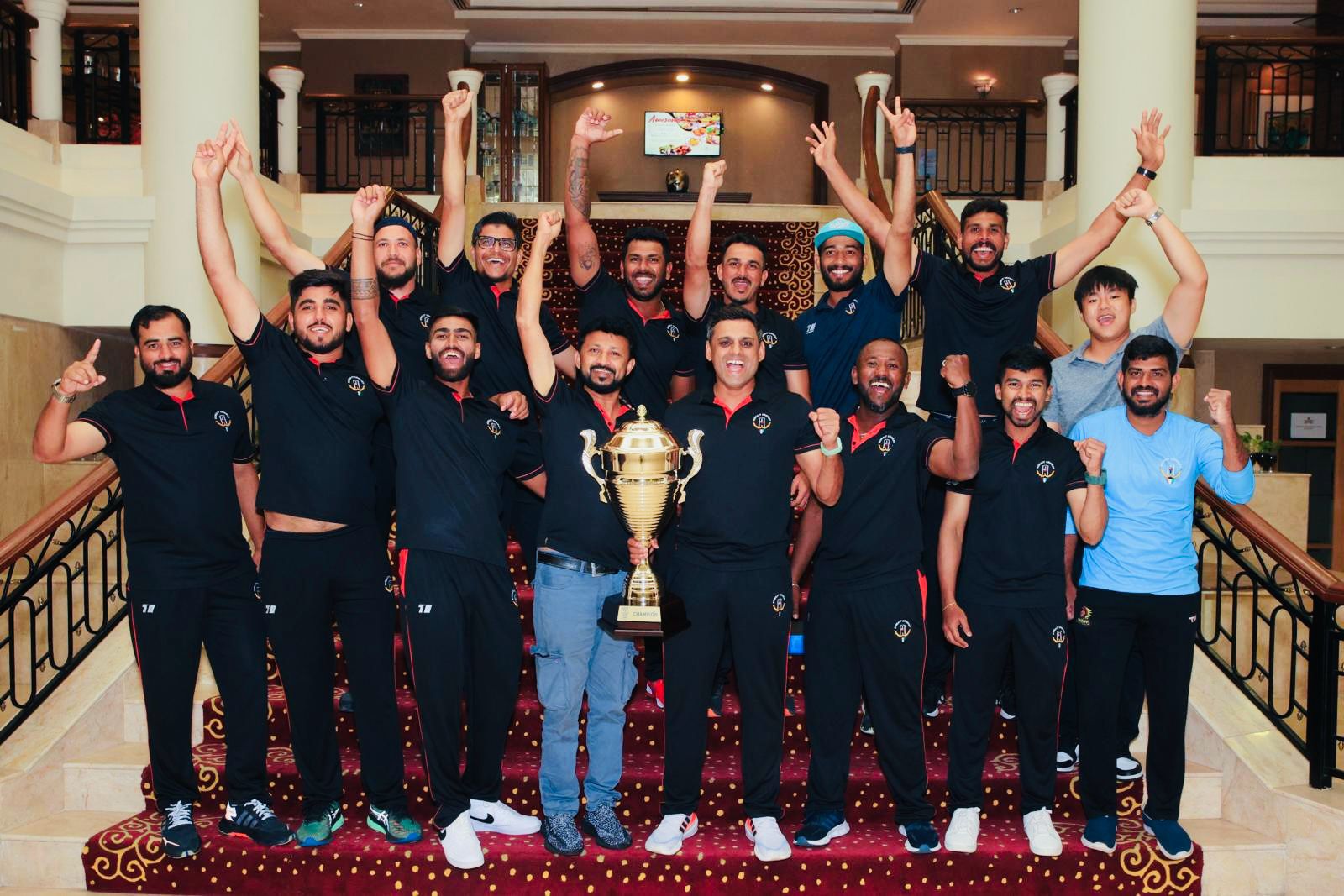
The Kuwait national cricket team has made progress, jumping from mid-40s in ICC rankings to 25
Yet Kuwait were a poor cousin in cricketing terms to neighbouring United Arab Emirates (UAE) where cricket had already taken a giant leap thanks to Abdur Rahman Bukhatir and played a 50-over Cricket World Cup in 1996. Even Oman, which became an International Cricket Council’s affiliate member two years after Kuwait did, made such rapid progress that by 2016, they were featuring in ICC T20 World Cup.
Kuwait didn’t have much to show in the noughties era of this century except a couple of third place finishes in ACC Cup and ACC Twenty20 Cup, tournaments meant for the affiliates in Asia.
“When I returned to Kuwait in 2009 from England, I came back with a massive vision, big dream and aspiration. I hail from a strong business family. Had financial backing too. Dad supported me too,” recalls Ashraf, who had an easy time convincing his dad to let him devote time to cricket.
“I told him, ‘I have seen UAE grow in cricket. The diaspora is there in Kuwait and I see a future for cricket. It will take massive strides, just like what happened in football. I really want to get into Kuwait cricket establishment. I want to play a part. I want to take the country Kuwait to a level where we can really compete in big ICC and ACC events. Put Kuwait on the global map’.”
Ashraf, a former Kuwaiti national team player from early noughties, then set his sights on a cricket ground, known as the entertainment city cricket ground. That land belonged to Touristic Enterprises Company, a leading company in Kuwait.
It was put up for bidding, which used to happen every four years. Ashraf established a sports company by the name of TAD International and bid for it.
“When we got the ground, we brought clay from Nandipur (Punjab, Pakistan) in 2011. We imported floodlights from Bajaj, Mumbai with poles and everything. That was the first time we got a stadium with lights. We invested close to half a million dollars in it.”
The ground began hosting Kuwait’s domestic cricket and Ashraf’s efforts were soon noticed with the then President Haider Farman asking him to become director of domestic cricket and Kuwait Cricket’s marketing.
Armed with power and confidence, Ashraf organised a day-long festival in 2014, bringing some stars of international cricket to the tiny emirate.
“We did a festival of four nations in 2014. It was pathbreaking. I raised around 3,00,000 dollars single-handedly for that to conduct the one-day event in which Yusuf Pathan, who was playing for KKR at the time and had made waves as a big-hitter, participated. I have been on the Board of Directors of the Wasim Akram Foundation (WAF), a charitable foundation. Akram was associated with KKR at that time. I had spoken to Wasim bhai and he spoke to Yusuf bhai who came for that particular tournament.”
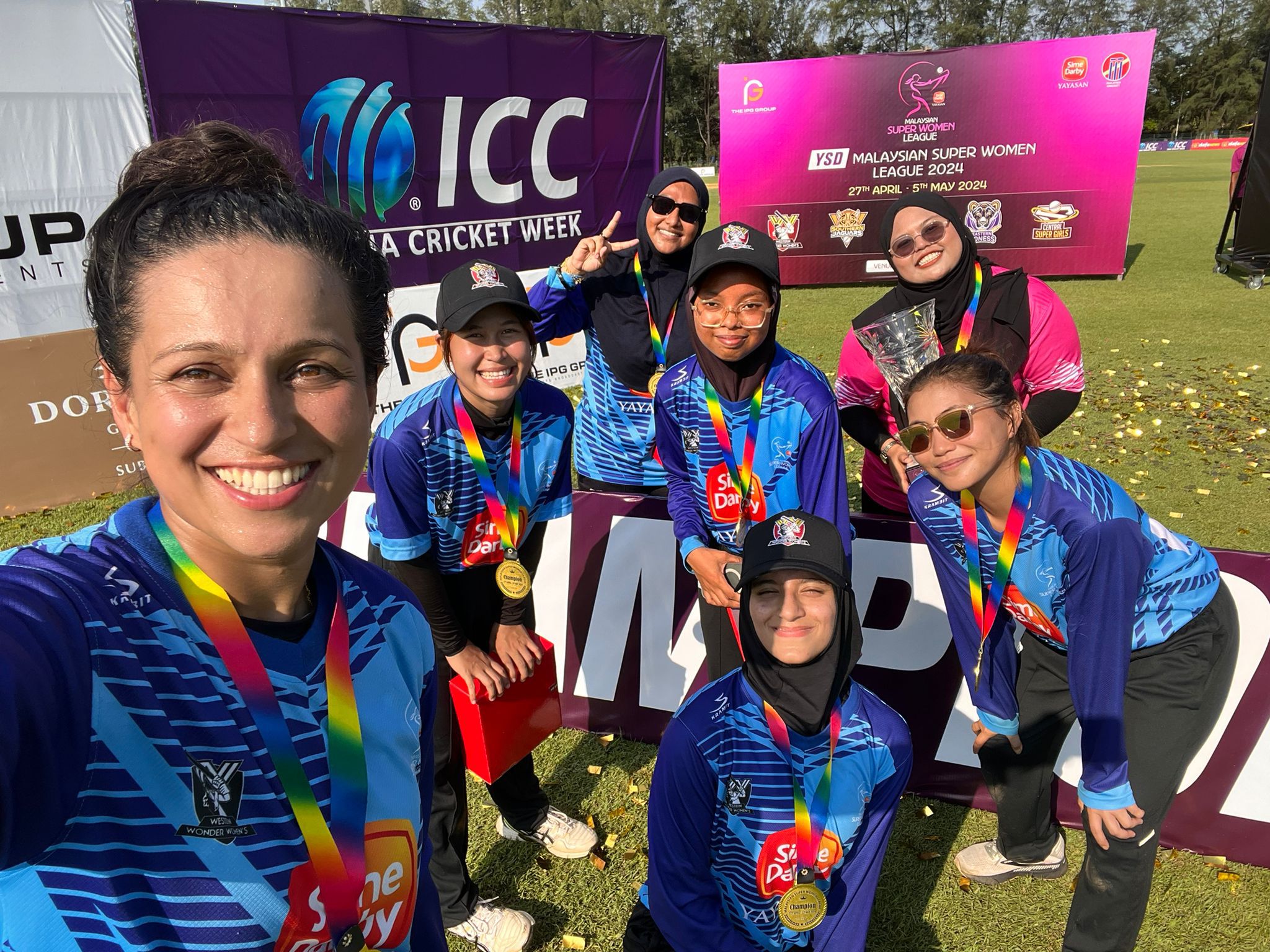
Kuwait women's team captain, Amna Sharif with teammates. As many as 10 women will be on contract from this year
Herschelle Gibbs, Scott Styris, Adam Hollioake, Aravinda de Silva, Upul Chandana and Azhar Mahmood were also invited.
“The idea was to show the level at which we can host cricket. We had made four teams — best of India local, Pakistan local, Sri Lanka local and Kuwait. In Kuwait, only Kuwait-born could play as per the eligibility criteria of ICC at that time.”
Mahmood represented Pakistan local, Pathan was with India local, De Silva and Chandana with Sri Lanka local whereas the three non-subcontinent players — Gibbs, Hollioake and Styris — went to Kuwait.
“I got McDonalds and Western Union as sponsors.”
The one-day T20 tournament began at 7 am and ended in the evening, with the Player of the Tournament — left-arm spinner Syed Imran — getting a Mitsubishi Attrage.
What was more important was that around 10,000 people had gathered to watch cricket.
“We showcased Kuwait in a positive manner, and showed the way to market cricket and player. There was no digitalisation.
“We even worked through the night, got the carpenters employed, making things of cardboard. We made boundary boards, flex panels, with sponsors like McDonald’s, Inaya Insurance, Mitsubishi, and Gulf Bank. Fortunately, Shah Rukh Khan was the Western Union brand ambassador. They were authorised to use SRK material for the promotion at the gates. So, we had a large cutout of SRK outside the ground, 12-14 feet. In his hands there was a board welcoming Tag Heuer four-nation T20 festival.”
That event changed the face of cricket in Kuwait, and also helped Ashraf get a toe-hold.
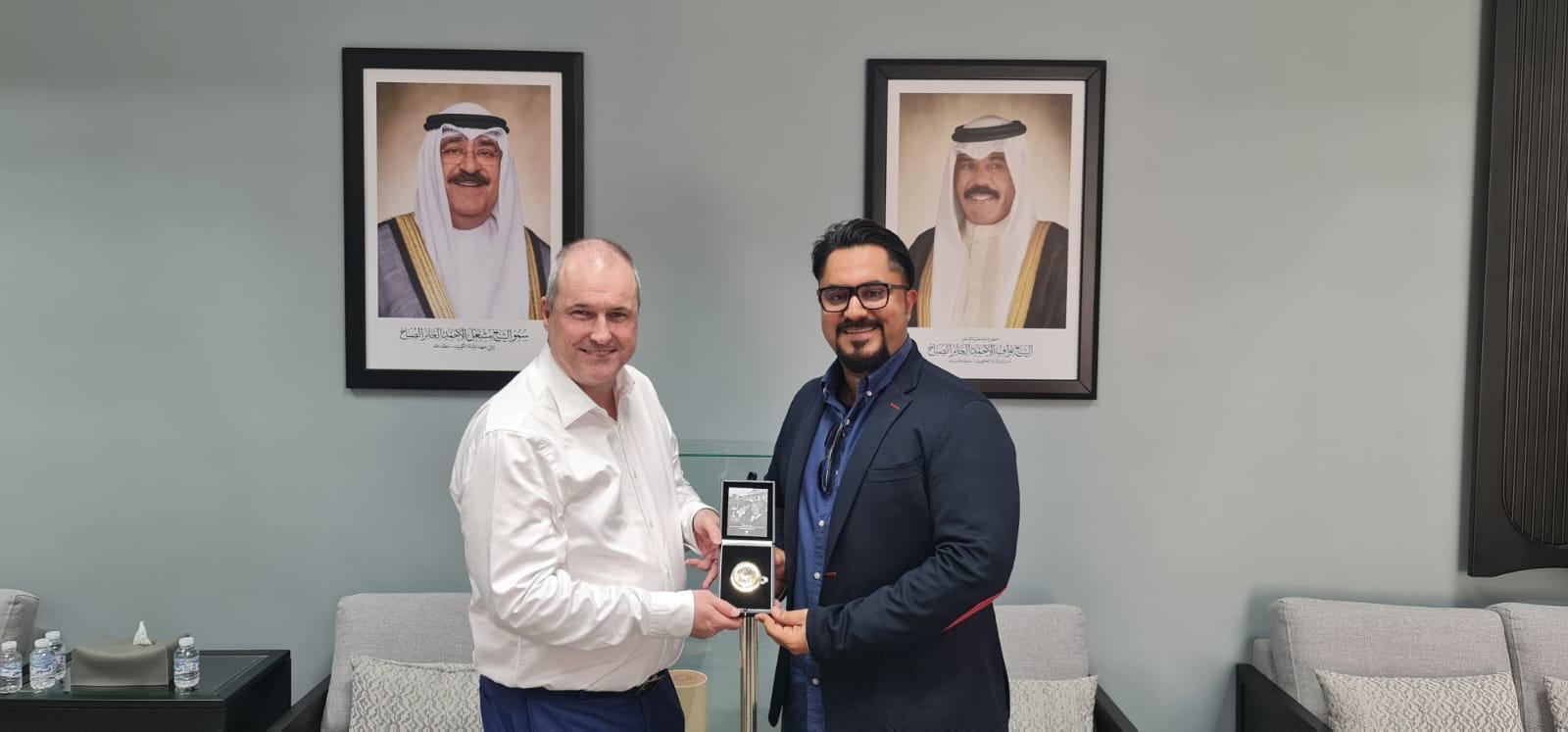
Sajid Ashraf, the man behind development of cricket in Kuwait, with ICC CEO Geoff Allardyce
“I got into Kuwait cricket, became domestic and marketing director. After that launch, we made rapid strides and our entire domestic set-up became centralised. We brought the 8-10 desert ground under the umbrella of Kuwait Cricket.
“The plan was to improve domestic structure so that the top players could come up. We made A, B, C, D, and E divisions. We had promotions and relegations, there were 150-200 teams that used to play in Kuwait.”
Segregation of the teams was done and they were allotted grounds.
“The masses were put onto desert grounds while the elite teams were diverted to turf grounds. We had only two turf grounds – one in entertainment city, and the other was Sulaibiya Cricket Ground (in cover pic) which was established in 2006-07. It is now our main ground. At that time, the condition of that ground was really pathetic. There was no maintenance of grass, typical issues with associate nations.”
Ashraf says that the Sulaibiya ground was upgraded.
“We upgraded the Sulaibiya Cricket Ground; the grass was changed entirely. We changed the square. Floodlights weren’t changed then due to budget constraints. But that is as far as we stopped in 2016-17.
“Every year we now conduct 550-600 matches just in Sulaibiya itself. If we include desert ground matches, we are talking about 1300+.”
The next big challenge was fees. Domestic cricket was established but in terms of money, players weren’t getting anything. They were getting only allowances. They couldn’t even consider cricket as a semi-professional sport.
“In 2017, we had to tour Thailand in ICC Division 5, which was a pathway for the 50-over World Cup. I went as team manager. I found that there was no motivation, no passion among the players to represent the country. It was almost as if they had come to spend a two-week holiday there. So, I had an open-hearted conversation with the players at that time.
“For them, it was about daily living. If they are spending time in cricket, what are they getting in return. I thought that till we don’t take care and give them what they deserve in terms of their well-being and welfare, how can we progress.
“We thought let us give what is in our control. Let’s provide them with the best of facilities possible. So, we upgraded our ground facilities and infrastructure. Turf wickets, bowling machines, we started looking after the grounds, we gave them good resources, and coaches.”
In 2018, Kuwait hosted the ICC T20 World Cup Asia Sub-Regional Qualifier. Ashraf, as the tournament director for that, ensured the players from all second and third-rung cricket nations were booked in five-star hotels.
“I knew the mentality of players. Earlier, players used to be put in two and three-star hotels. We gave them proper hospitality. It put Kuwait in good books.”
Herschelle Gibbs was appointed as the Head Coach of Kuwait for a period of four months. That created a buzz in the entire region. At that time, UAE had Dougie Brown but Gibbs was a big catch.
From that tournament, UAE, Kuwait and Qatar went on to qualify for the T20 World Cup Regional Qualifiers in Singapore which was the platform to make the ICC T20 World Cup Qualifier. Singapore progressed from there.
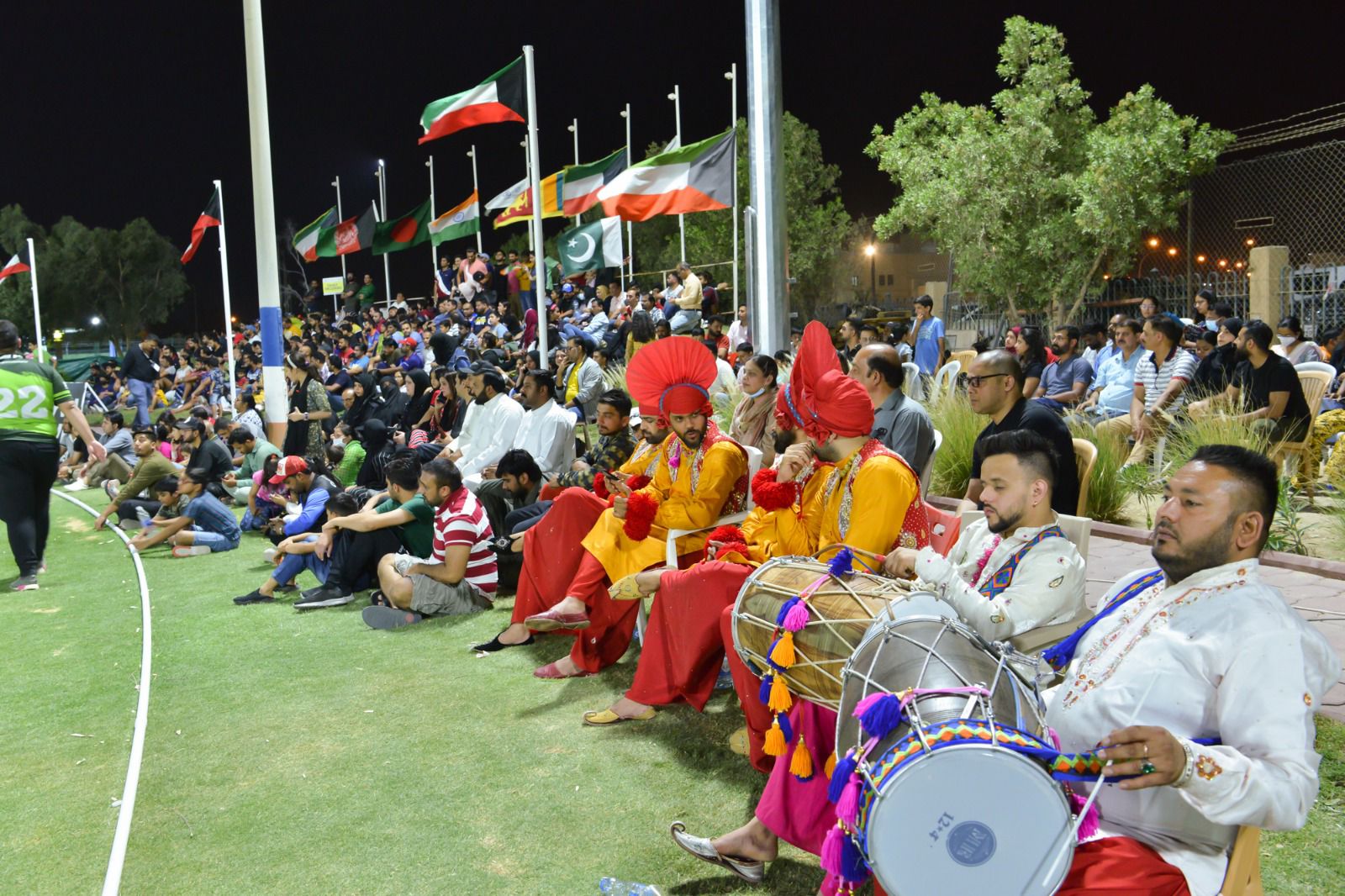
A dash of colour on the sidelines of a cricket match in Kuwait. The south Asian diaspora offers the primary following for cricket
Post 2018, players were brought on contract.
“During Covid, we gave contract to 20 men’s players (A+, A, B and C based on performance), paid them handsomely as per Kuwaiti and Associate standards. We also contracted eight women players in the national team. This year (2024) we are extending the contract to 10 women.”
The results also started coming.
“Our under-19 team played Asia Cup twice. Playing against India, Pakistan, Bangladesh, Afghanistan teams in under-19 Asia Cup was a major breakthrough. In men’s, we started organising bilateral series.”
Kuwait progressed from mid-40 a decade ago to 25 in ICC rankings for T20 cricket (as of July 17, 2024). To put their progress in perspective, Nepal, USA, Oman, Papua New Guinea and Uganda, are 17, 18, 19, 20, and 21 respectively. These nations featured in the recent T20 World Cup in USA and the West Indies.
“After playing these bilaterals, we have brought our ranking to 25 which is just five spots away from maiden T20 World Cup spot which is our ultimate target.”
Kuwait has also impressed in 50-over cricket.
They finished among top four at the 2023 ACC Men's Premier Cup, which was the pathway to 2023 Asia Cup hosted by Pakistan and won by India. The tiny emirate pipped Hong Kong out of the usual top four, and joined Nepal, UAE and Oman in the semi-finals.
**If you like my work, consider buying me a coffee at: www.ko-fi.com/flyslipcricket
Kuwait, ICC, Cricket, West Asia, Middle East, Gulf